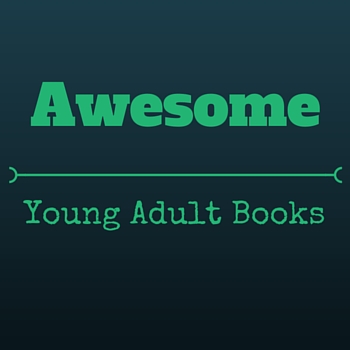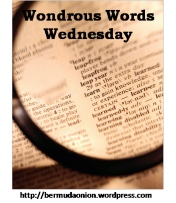They say a great YA novel has amazing voice, with characters who speak and think in unique and entertaining ways. Mosquitoland by David Arnold is one of those books. I love its protagonist Mary Iris Malone (aka Mim) and her musings on life as much as I love Hazel Lancaster from The Fault in Our Stars.
Premise
 As the story opens, Mim is traveling by bus from Mississippi (”Mosquitoland”) to Cleveland. Her mom is sick, she’s not sure with what, and she’s on a mission to help her. But, she might also be running from her dad (”a man who has succumbed to the madness of the world”) and his new wife, who have moved Mim from her childhood home near Cleveland to one they bought in Mosquitoland for the “low, low price of Everything She’d Ever Known”.
As the story opens, Mim is traveling by bus from Mississippi (”Mosquitoland”) to Cleveland. Her mom is sick, she’s not sure with what, and she’s on a mission to help her. But, she might also be running from her dad (”a man who has succumbed to the madness of the world”) and his new wife, who have moved Mim from her childhood home near Cleveland to one they bought in Mosquitoland for the “low, low price of Everything She’d Ever Known”.
Chapter One opens with Mim proclaiming that she is not okay, and she repeats this refrain throughout her journey as she reveals her many idiosyncrasies and curiosities. Her companions on her trip include a kind old woman who smells like cookies, a boisterous boy with mental retardation and a love for his Rubik’s cube, and an attractive young man who becomes the “Africa” to Mim’s “Madagascar”.
What I liked
Mim has an engaging voice. She’s brutally honest about herself and the people she meets, and yet she seasons her commentary with such witty humor that you can’t help but laugh as you wince at her observations. She uses unusual, almost archaic diction, saying things like, “blimey, [the guy in seat] 17C is good looking” or “’twas always thus”.
Mim is a collection of oddities, and although this makes her feel “not okay”, it makes her relatable to readers who also see themselves as walking freak shows. She is blind in one eye because during a solar eclipse, she stared at the sun when she shouldn’t have. This blindness gives her poor depth perception and provides an apt metaphor for her inability to see the big picture. Sometimes, when she’s by herself, Mim paints lines on her face with her mom’s lipstick, a habit she refers to as “putting on war paint”. It’s a ritual that connects her to her mother and is also a window into her crazy. But, don’t we all have that thing we do when no one else is looking that is probably a little wacko?
Mim is a bit unreliable as a narrator. Sometimes she lapses into her memories and loses touch with reality. She also may or may not be taking Abilitol for the psychosis she may or may not have. Early on, Arnold exposes readers to Mim’s occasional separations from the present; it’s not always clear what is real and what is not, which compels readers to keep turning pages.
Mim makes astute observations of life. For example, when her friend Beck is questioning a decision he made, she says,
I play the What If game all the time. But it’s rigged, is the thing. Impossible to win. Asking What if? can only lead to Maybe Things Could Have Been Different, via Was It My Fault?
Later, in that same chapter, she says,
Sure, I’d love to kiss-hug-marry-hold Beck, but for now, I’m happy just to be with him. Sometimes being with gets overlooked I think.
Wow. You nailed it Mim. (And Mr. Arnold.)
What I didn’t like
Very little. Sometimes the exploits of Mim’s journey felt unrealistic, but this is the story of an emotional journey as well as a physical one, and the emotional accuracy trumps any unlikely plot points.
Recommendation
If you like John Green’s novels, or books that are a clever blend of humor and harsh reality, than you will love Mosquitoland. This is the best YA book I’ve read in a while.
Notes on content
Some swearing and reference to suicide and sexual assault. No graphic descriptions, although a near sexual assault is appropriately disturbing.
Have you read Mosquitoland or Arnold’s second book Kids of Appetite? What did you think? Can you recommend any other YA titles that tell the story of a physical and emotional journey?
Happy reading!















